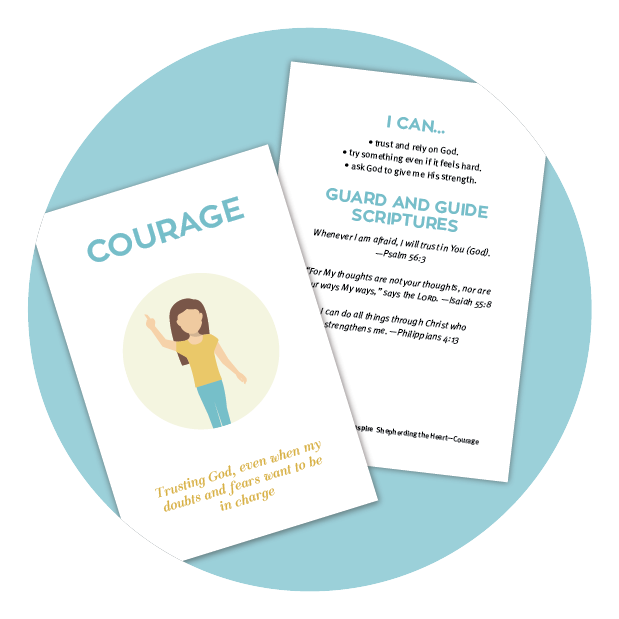God’s Word guides us on a straight path in our lives. We learn how to use this guide by meditating on it, by thinking about what the Bible means and how to apply it in our lives. , We learn how to live a life that makes God and us happy, and we learn what to avoid so we don’t make life harder for ourselves or others. A good example of meditation is in Philippians 4:8 , where Paul tells us to meditate on certain things, including “whatever things are true.” But what is truth?
Is truth when you see Christmas decorations and people say, “Happy birthday, Jesus”? Is truth when your friends tell you to “follow your heart” when you’re faced with a decision? Or is truth when your teachers tell you to “find your truth” if you ask questions? Are the words in the Bible truth? How do we discern and then meditate on what is true?
Others have asked these same questions. When Jesus Christ told Pontius Pilate that His divine purpose included bearing “witness to the truth,” Pilate asked “What is truth? John 18:37-38 .
To answer Pilate’s question, the truth is what’s real. The Greek word translated “true” in Philippians 4:8 refers to what is unhidden or unconcealed.
The Bible is the Word of God and the source of truth. It even contains truth that can set us free.
For Christians, meditating on God’s revealed truth in the Bible can have a huge impact on their everyday lives, the thoughts they have, and the choices they make. The Bible is the Word of God and the source of truth (John 17:17). It even contains truth that can set us free John 8:32 .
Many people in the world disagree with what God teaches us. They might say, “Your truth is not the same as my truth,” “It’s okay if you believe that, but I believe something else,” or “The Bible was written too long ago to help us in life today.” Lies can be much more popular than the truth, but for Christians, meditating on God’s truths in the Bible can help us make better choices every day, affecting what we think, say, and do.
Here are some suggestions for what to do and not to do when it comes to thinking and speaking the truth.
Think what is true
To think the truth, try to:
Remember God is in charge and will help us through the good times and hard times in our lives if we pray for His help.
Replace some of our “free time” activities with time in the Bible. Start by taking five minutes away from those activities to read a chapter of the Bible and see what you learn.
Spend time with someone you don’t know very well in your congregation, either in person or through cards and letters. It could be a widow, a married person, or a child older or younger than you. It’s okay if you like different things—you can still learn what they like, why they like it, and what life is like for them. By caring about how other people think and feel, you are learning the many characteristics of God. Just remember to be gentle if your new friend roots for the Bengals and you like the Browns.
Replace some of our "free time" activities with time in the Bible.
To think the truth, try not to:
Spend time thinking about every “what if” that pops into your mind. Usually these thoughts don’t lead to the fruit of joy and peace but instead lead to fear and worry. We don’t have to believe everything our minds think. As soon as a “what if” enters your mind, take it captive 2 Corinthians 10:5 and ask God to help you think a realistic thought, like “God will help me through this.”
Spend most of your free time in fictional lands through video games, movies, or books where all you want to think or talk about is imaginary. Real life has many opportunities to enjoy, like spending time with people in person, developing a talent, and learning a skill. Spend time with people, especially the elderly who do not have much contact with others during the week. Talk with your parents about the amount of time you should spend on free time activities.
Believe the worst about someone. Your parents love you and have rules for your good. They aren’t trying to be unfair. They want you to be the best you that you can be! When troubles happen between siblings or friends, be quick to forgive, be a problem solver, and move forward. Everybody makes mistakes!
Speak what is true
To speak the truth, try to:
Tell the whole truth to our parents, siblings, family, and friends Ephesians 4:25 no matter the consequences. In the VeggieTales version of Esther, Mordecai tells Esther, “Never be afraid to do what is right.” Telling the truth can be scary, but it is the right thing to do. Being honest builds God’s character in you. The more you tell the truth now, the easier it will be to tell the truth later. Being truthful is important to God, as shown by the Ninth Commandment and the fact that God’s Word says He hates lies Proverbs 6:16-19 . God knows being truthful is what is best for us and those around us. Everybody makes mistakes, and if you’ve chosen to lie, be quick to catch it, throw it in the trash, and tell the truth instead. Ask God to forgive you for your mistake and help you to right the wrong.
Tell the truth gently. Some situations require using gentleness while speaking truth. For example, your best friend is wearing a flowery hat you don’t like, and your friend asks, “Do you like my hat?” You could say, “No way! That is the ugliest hat I have ever seen!” or you could say, “I like your baseball hat better.” Whatever you choose to say, consider how to be gently truthful with your words. Ask your family to help you know what to say in sticky situations so that you can be ready to be truthful in a kind way!
To speak the truth, try not to:
Say “You/I always” and “You/I never” when talking to your parents, siblings, or friends. When your feelings are big, that is the best time to stop, breathe, and get control of those strong, yucky feelings so they don’t control your words and actions. Feelings come and feelings go. Choose your words and actions wisely so you won’t regret your decisions later.
Tell one side of the story. Nobody likes to get in trouble with mom and dad, and it can be so easy to just tell a little bit of the problem, like only what your sibling or friend did wrong, so that you don’t get in trouble. But God knows the whole truth and wants you to tell the whole truth, even if that means you won’t like the consequences. Telling the truth in hard times shows that you are trustworthy.
Do what is true
By thinking about and saying what is true each day, we do what is true—obeying the Sabbath, considering the needs of others, looking on the bright side when times are tough, and being helpful to those around us.
There are many wonderful things in this world, but it’s important to remember that the tree of the knowledge of good and evil, not the tree of life, is an influence on people who don’t yet know God’s truth. So keep your eyes open and your brains thinking about God’s truth when the world wants to mix good and bad together.
Do your best to remember to thing the truth, speak the truth, and do the truth every day!
Meditate on what is true
Thinking about what is true gives us a solid, steady path as we walk through life each day. Half-truths and lies are sure to lead us on a wobbly bridge with missing planks, causing a swift fall to a place we don’t want to go. Do your best to remember to think the truth, speak the truth, and do the truth every day!
Further Your Study
Shepherding the Heart Display Cards
Print these cards on card stock to accompany the nine Shepherding the Heart lessons. Display them around your home as you work on each character trait. Read More >



